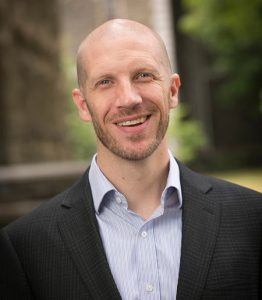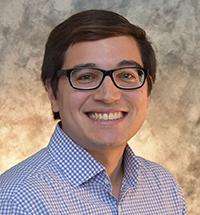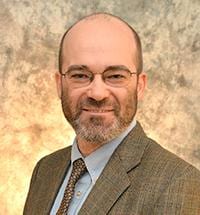CPC’s Grant Development Program (GDP) provides new investigators with hands-on mentorship and administrative support to develop their research for external funding and is co-directed by Matt Hall and Erin York Cornwell.
CPC will once again partner with the Cornell Center for Health Equity (CCHEq) and the Cornell Center for Social Sciences (CCSS) to offer the CCSS NIH Grant Development Writing Program. Last year, we supported a cohort of 16 scholars in the workshop series, awarded 6 pilot grants, and supported 7 Grant Development Fellows who have (or will soon) submit grant proposals to NIH. This year, we will again be able to provide resources and mentorship opportunities to support the development of competitive NIH grant proposals.
The program will again focus on mentoring PI eligible social scientists through the process of writing an NIH grant from concept to submission. The program has three components – a workshop series, pilot grants, and grant development fellowships.
The NIH Grant Development Workshop Series is open to the entire Cornell community. Applicants who are accepted to the 2023 grant development cohort will be required to participate in the 3-part series (beginning February 10th from 12:00 pm-1:00 pm and running through mid-April). Upon completion of the workshops, cohort members will be eligible to apply for one of two development tracks – pilot grants of up to $3,000 or Grant Development Fellowships with support of up to $10,000.
Members of the 2022 cohort who did not participate in the grant development fellowship track last year are also eligible for the 2022 development tracks but are not required to participate in the 2023 cohort (though they are welcome to attend any sessions they choose).
To learn more before submitting the short application, join us for a thirty-minute information session.
Sessions will be held on the following dates:
Thursday, December 8, 2022
10 – 10:30 AM
Zoom link
Tuesday, January 17, 2023
10 – 10:30 AM
Zoom link
The deadline to apply is Monday, January 30th at noon. To learn more information, please visit the program website. If you have any questions related to the 2023 CCSS Grant Writing Development Program, please contact Gretchen Rymarchyk, CPC Program Coordinator.
2020-21 GDP
This year CPC is collaborating with the Cornell Center for Social Sciences and the Cornell Center for Health Equity (CCHEq) to launch the 2021 CCSS Grant Writing Development Program. This year, the program is focusing on mentoring PI eligible social scientists through the process of writing an NIH grant from concept to submission. Applicants who are accepted to the 2021 cohort will participate in a four-part workshop series (beginning February 10th and running through early April). Upon completion of the 4 workshops, cohort members will be considered for one of two development tracks toward submission to NIH. To learn more before submitting the short application, join us for a thirty-minute information session. All are welcome to participate in the workshop series.
2019-20 GDP
This year’s focus is to develop workshops to learn more about grant writing opportunities and to share external funding experiences and ongoing mentoring. The fall GDP workshop with Vida Maralani and Matt Hall took place in December. Vida and Matt discussed the substance of their research projects, the grant writing around them and what the awards would help them accomplish. We also allowed time for all to talk about what kinds of additional programming/support would be helpful to CPC affiliates.
Spring 2020 external awards to faculty supported through the GDP include:
Adriana Reyes (PAM) received funding from the Network on Life Course Health Dynamics and Disparities in 21st Century America (NLCHDD) through the Syracuse University Aging Studies Institute for her pilot project, Unmet Caregiving Need Across State Policy Contexts.
Warren Brown (PAD and FSRDC) is collaborating with Sarah Hamersma (Syracuse University) on the WT Grant Foundation funded project, Keeping the ‘Great Equalizer’ Fed: SNAP Access and Young Adults’ Educational Engagement.
Nicolas Ziebarth (PAM) was awarded a Spring 2020 CCSS grant award for US Sick Pay Mandates: Coverage and Welfare Effects.
2017-18 GDP Fellows
 Peter Enns (GOV), “Estimating State Crime Rates with the National Crime Victimization Survey”
Peter Enns (GOV), “Estimating State Crime Rates with the National Crime Victimization Survey”
This project uses the National Crime Victimization Survey to generate over-time estimates of state and urban crime rates based on crime victimization records. The resulting data will be ideally suited for evaluating the causes and consequences specific types of crime, including tests of whether various criminal justice policies effectively reduce criminal activity.
 Patrick Ishizuka (CPC Rhodes Postdoctoral Fellow, 2016-19), “Elder Care, Employment, and Gender Inequality”
Patrick Ishizuka (CPC Rhodes Postdoctoral Fellow, 2016-19), “Elder Care, Employment, and Gender Inequality”
The project examines trends across birth cohorts in older men’s and women’s provision of care to elderly parents, focusing on the declining gender gap in who provides care. Using an instrumental variables approach based on changes in parent health needs, the project also assesses trends in the effects of caregiving on men’s and women’s employment.
 Vida Maralani (SOC), “Breastfeeding and the Work-Family Balance in the United States”
Vida Maralani (SOC), “Breastfeeding and the Work-Family Balance in the United States”
Maralani’s project examines the relationship between breastfeeding duration and women’s labor force participation across the life course. She examines women’s detailed occupational characteristics and trajectories before and after birth to determine whether women change their work patterns in anticipation of breastfeeding or after they initiate breastfeeding. She further analyzes whether and how much the characteristics of their occupations and families inform their breastfeeding and work decisions.
 Jordan Matsudaira (Columbia Teachers College), “The Effects of Employment Incentives and Cash Transfers on Parent and Child Outcomes: Evidence from the Long Run Effects of Welfare Reform Experiments”
Jordan Matsudaira (Columbia Teachers College), “The Effects of Employment Incentives and Cash Transfers on Parent and Child Outcomes: Evidence from the Long Run Effects of Welfare Reform Experiments”
Matsudaira extends evidence on welfare policies by examining the long-run impacts of a high impact set of randomized evaluations. He will use data from Census Bureau’s data linkage infrastructure to reanalyze a set of experiments involving adult and children welfare recipients from the mid-1900s.
 Douglas Miller (PAM), “The Long Run Impacts of Head Start: Creating a New Funding Panel Dataset, and New Evidence on the Program’s Effectiveness in Promoting Equality of Opportunity”
Douglas Miller (PAM), “The Long Run Impacts of Head Start: Creating a New Funding Panel Dataset, and New Evidence on the Program’s Effectiveness in Promoting Equality of Opportunity”
Miller will construct the first ever county-year and state-year panel datasets of Head Start funding, covering the program’s beginning in 1965 until today. He will then use these datasets, along with institutional knowledge about the program’s introduction and later funding changes, to provide new evidence on the program’s long run impact on health, education, labor market and other demographic outcomes.
 Nicolas R. Ziebarth (PAM), “US Sick Pay Mandates and Their Impact on Coverage Rates, Fringe Benefits, and the Spread of Diseases”
Nicolas R. Ziebarth (PAM), “US Sick Pay Mandates and Their Impact on Coverage Rates, Fringe Benefits, and the Spread of Diseases”
This project empirically evaluates the impact of sick pay mandates on coverage rates and the spread of diseases in the US. Ziebarth uses the restricted version of the National Compensation Survey and build a database on influenza activity to estimate the causal effect of nine city and four state-level mandates.
2017-18 GDP Mentors: Rachel Dunifon (CHE and PAM), Dan Lichter (PAM and ISS), Karl Pillemer (BCTR/HD), Jeff Niederdeppe (COMM), and Elaine Wethington (HD)
